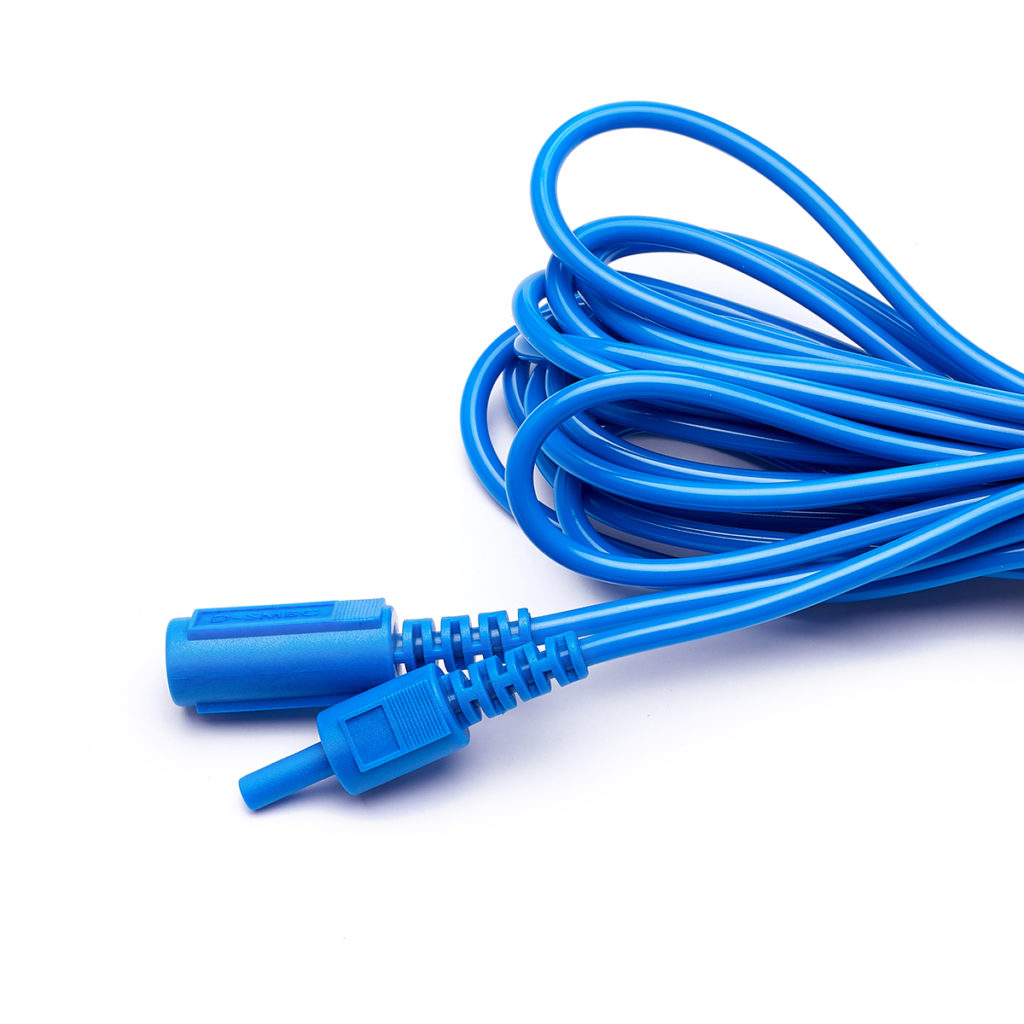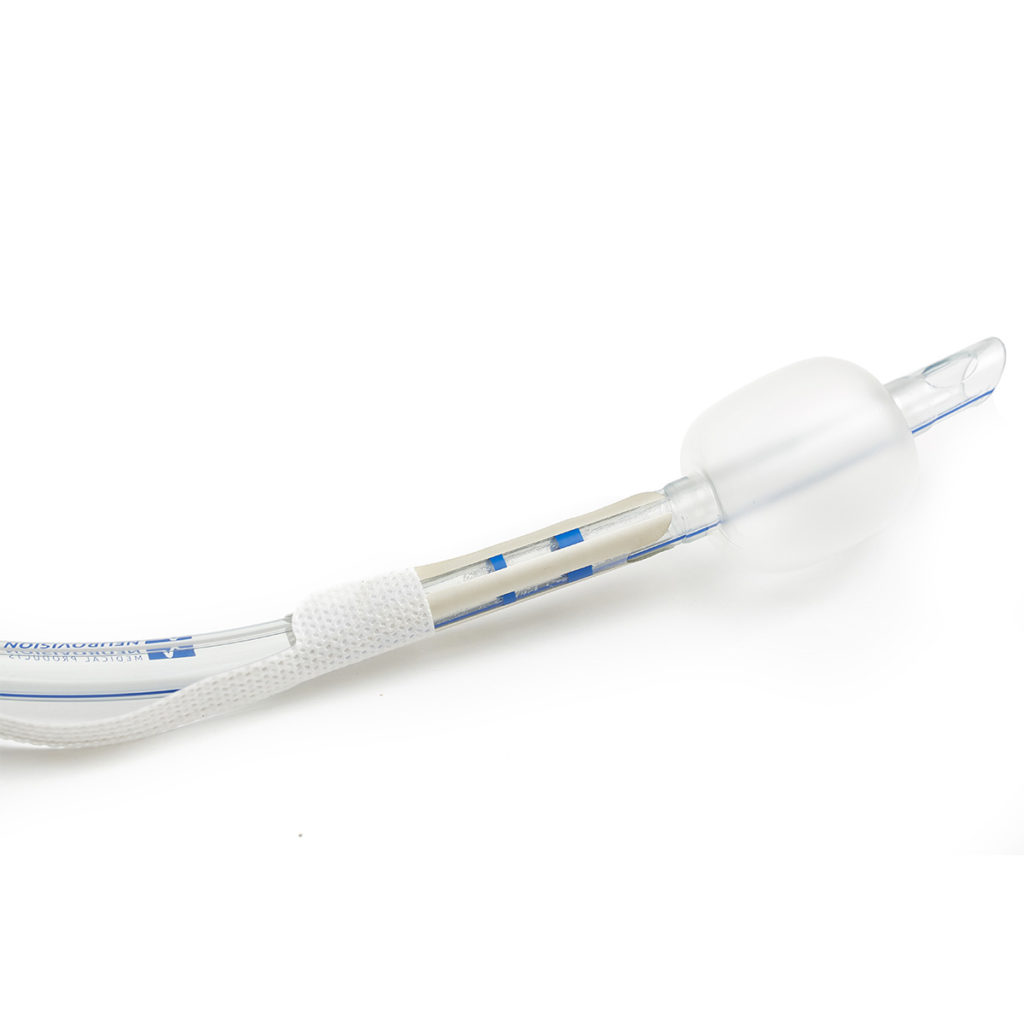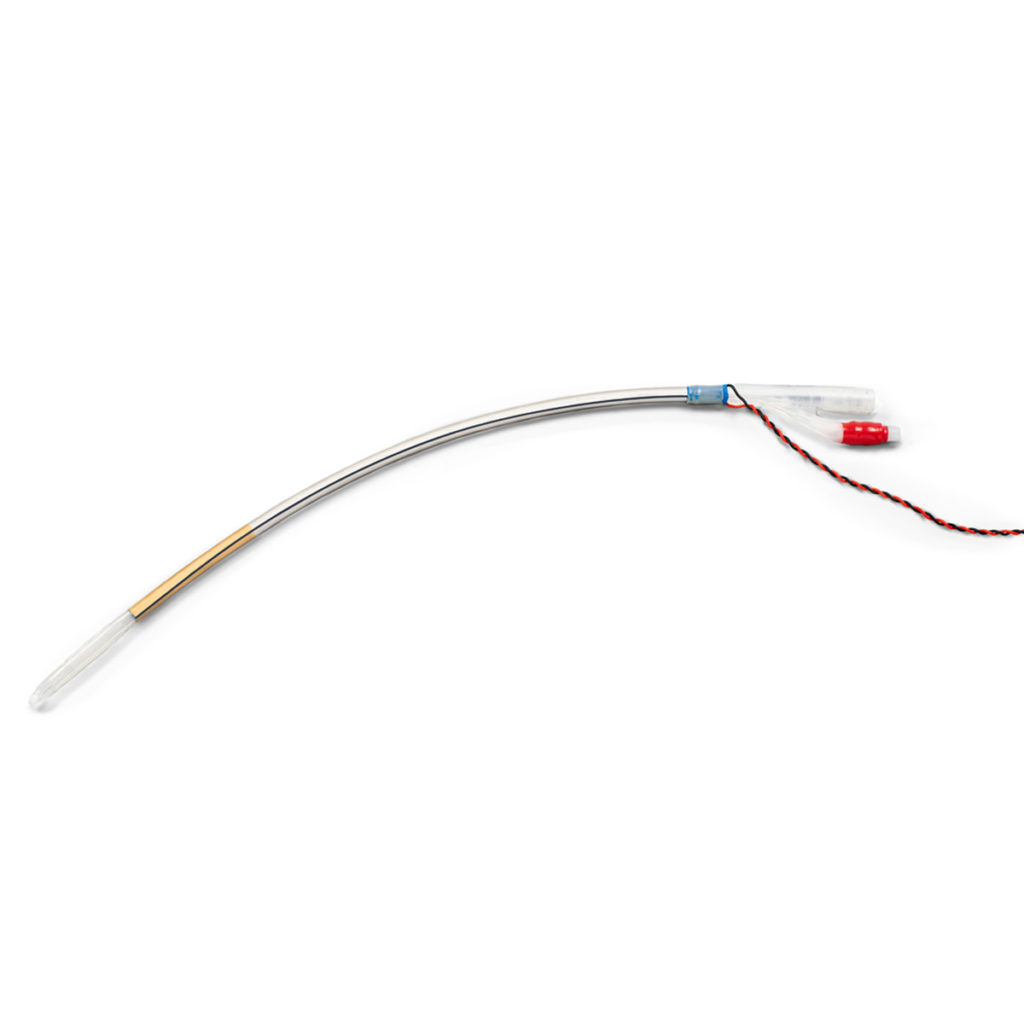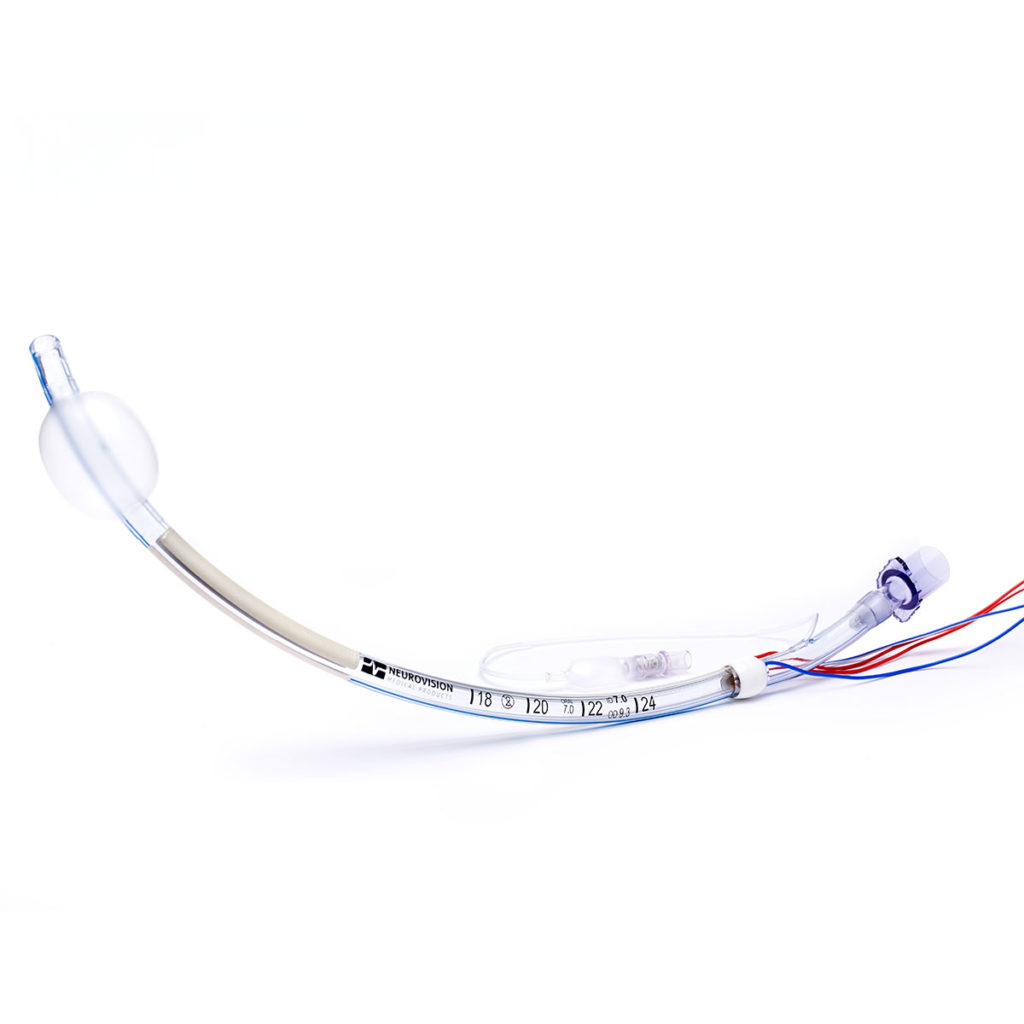
Cobra 3
EMG Tube
Enhanced RLN Monitoring
Product Overview
Cobra EMG endotracheal tube offers advanced neuromonitoring capabilities for thyroid and ENT surgeries. The advanced design features elongated EMG electrodes in a unique three-plate configuration that delivers accurate free-run and evoked EMG signals. The patented EMG tube provides optimal contact with the vocal cords for reliable continuous EMG monitoring of the recurrent laryngeal nerve (RLN) with minimized airway trauma.1
Neurovision Medical Products’ redesigned C3P model of the Cobra EMG tube is truly universal. C3P EMG tube is interoperable and connects to any nerve monitoring system. The seamless integration with existing equipment delivers reliable IONM neuromonitoring without any additional equipment or setup.
Experience improved RLN monitoring precision with the Cobra 3-Plate EMG tube, providing enhanced support for thyroid and ENT procedures.
Ordering Information
Cobra EMG Tube
EMG Endotracheal Tube for Intraoperative Neuromonitoring of the RLN
| Item Code | Product Description |
|---|---|
| LTE7003PS-5 | Cobra 3-Plate EMG Endotracheal Tube, 6 mm |
| LTE7003PM-5 | Cobra 3-Plate EMG Endotracheal Tube, 7 mm |
| LTE7003PL-5 | Cobra 3-Plate EMG Endotracheal Tube, 8 mm |
*each Cobra EMG Tube includes a STIM return needle and a ground needle
Product Features
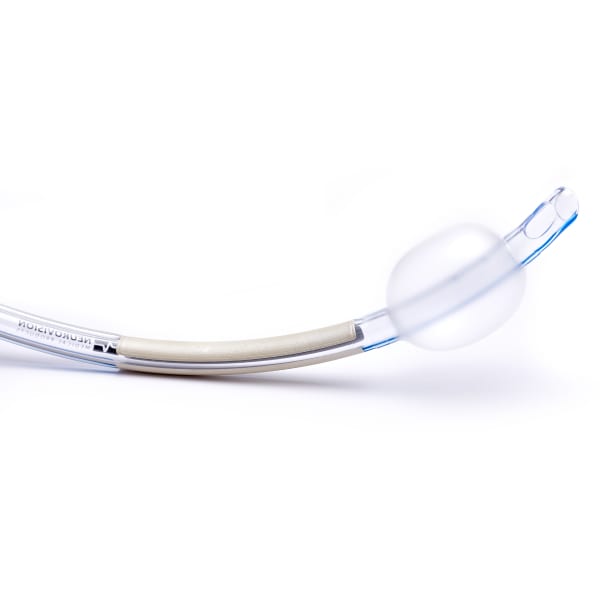
Atraumatic EMG Electrode
Cobra 3P EMG Endotracheal Tube—the newest laryngeal electrode by Neurovision Medical Products. Newly redesigned, EMG tube features key enhancements the to the electrode to deliver the most reliable EMG signals for superior neuromonitoring.
With a zero-profile*, the atraumatic electrodes prioritize patient comfort and safety. The EMG electrodes do not increase endotracheal tube (ETT) size, are gentle on the airway, to allow for IONM surgical solution that ease the procedure.
Neurovision Medical Products, patented EMG electrodes has been extensively validated for its safety and effectiveness. Cobra 3P enables prolonged, continuous neuromonitoring during surgical procedures.2
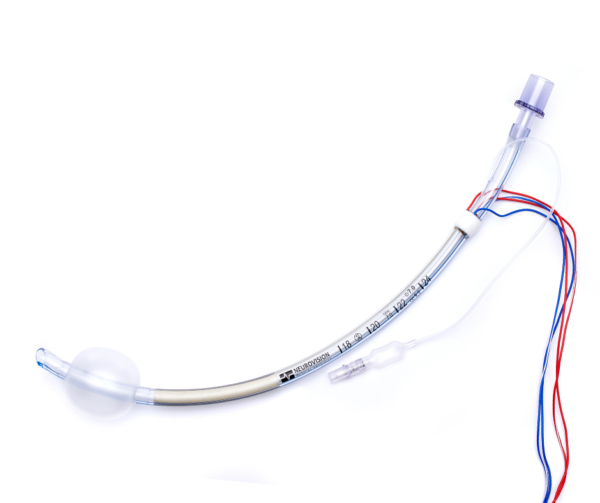
Interoperable Neuromonitoring
Cobra 3P innovative design is compatible with BOTH single-channel and multi-channel nerve monitoring systems.
The EMG tube redesign elongated the conductive silver ink recording plates. The modification creates the largest target area for contact with the vocal cords. Tube placement is easier and delivers more reliable EMG signals during the procedures.
High-quality EMG electrode for reliable neuromonitoring features 1.5 mm touch-proof DIN connectors with color-coded wires that identify the lateral and posterior plates.
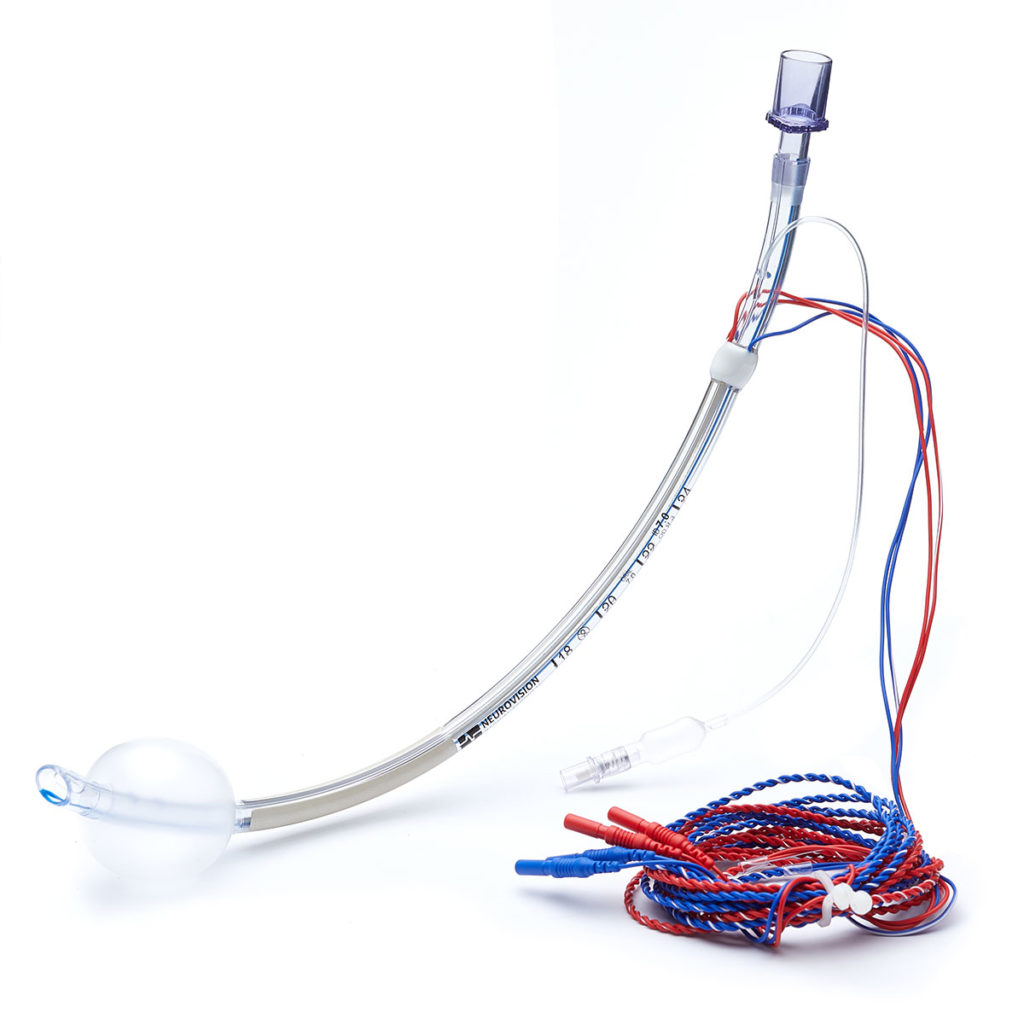
Secure Reliable Design
Additional features of the C3P EMG Tube enhance the intraoperative neuromonitoring performance.
A high volume, low-pressure cuff, improves the air seal on the trachea.
The EMG electrodes and wire integration are hermetically sealed to prevent fluids from disrupting the EMG signal and reduce unwanted functional issues. All lead wires use a standard DIN (42802) plug for an easy and secure connection to any nerve monitoring system.
The innovative NEW design with patented technology creates a truly universal intraoperative neuromonitoring EMG tube with an enhanced IONM performance overall.
Frequently Asked Questions
Yes, C3P EMG tube is fully interoperable. Designed for universal compatible with any nerve monitoring system. The EMG tube features color-coded lead wires with standard DIN (42802) connectors for an easy set-up on single-channel and multi-channel nerve monitoring systems.
1. Rea, James L. Blakely, Stephen W. Electrode for prolonged monitoring of laryngeal electromyography. US 20110071379 A1, United States Patent and Trademark Office, 24 March 2001. USPTO Database: bit.ly/3FnTT0L
2. Chiu, Peter et al.(2021) “Aortic elongation and bronchial splint for late bronchial complication after neonatal arch reconstruction.”JTCVS Techniques, Volume 8, 126 – 128. doi.org/10.1016/j.xjtc.2021.04.014
3. Hodnett, Benjamin L et al. “Superior laryngeal nerve monitoring using laryngeal surface electrodes and intraoperative neurophysiological monitoring during thyroidectomy.” Clinical anatomy (New York, N.Y.) vol. 28,4 (2015): 460-6. doi:10.1002/ca.22487 pubmed.ncbi.nlm.nih.gov/25425500/

